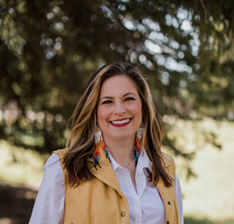The Faculty of Education is pleased to announce Dr. Melanie Brice as the inaugural Gabriel Dumont Research Chair in Métis/Michif Education.
The Gabriel Dumont Chair in Métis/Michif Education will increase research and teaching capacity in Métis/Michif Education in the Faculty of Education and enhance academic engagement with Gabriel Dumont Institute’s (GDI’s) Saskatchewan Urban Native Teacher Education Program (SUNTEP).
“The establishment of this new Chair, the first in a Faculty of Education in Canada, is one of many actions the faculty is taking toward Truth and Reconciliation,” said Dr. Jerome Cranston, Dean of the Faculty of Education. “The faculty continues to demonstrate a concerted and sustained commitment to teaching and research that is engaging faculty, students, and other education stakeholders in gaining a deeper understanding of our shared histories and a reconciliatory approach to a more just future.”
As Chair, Brice will undertake research that seeks to understand and expand the scholarship of teaching and learning by building capacity in Métis and Michif education. Her research will focus on learning, knowledge-keeping, language and cultural revitalization, reconciliation, and inclusion with and by the Métis through formal education systems.
According to the Statistics Canada 2016 census, Métis were the fastest growing population in Canada between 2006 and 2016. However, less than two per cent of Métis people speak the Michif language, making Michif one of the most vulnerable Indigenous languages in Canada.
Brice is an Assistant Professor in Indigenous Education, Language & Literacy Education, and Educational Core Studies with the University of Regina, Faculty of Education and has been appointed as Chair for a five-year term. Brice, a Michif (Métis) born in Meadow Lake and raised at Jackfish Lake, Saskatchewan, has a strong understanding of Indigenous histories, cultures, languages and literacies, perspectives, educational experiences, and cross-cultural education issues.




